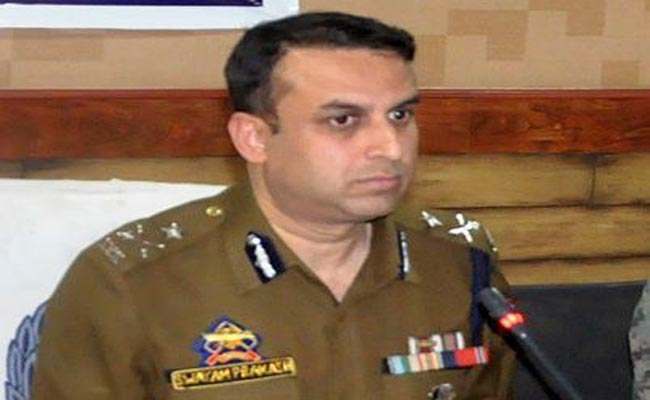Only 23 youths have joined militancy this year, 11 have returned home, says IGP Kashmir
Srinagar: It is a “myth” that there is a rise in recruitment of local youths into militant ranks, Kashmir’s Inspector-General of Police (IGP), Swayam Prakash Pani, told Kashmir Reader and asserted that the number of Kashmiri youths taking up arms has fallen significantly since the killing of Burhan Wani in July 2016.
“The myth that there is huge recruitment (in militant ranks) is actually statistically incorrect. The number of youths joining militancy is not as much as is being projected in social media. This year, so far, only 23 youths have joined militancy in the entire Valley,” Pani said in an interview with Kashmir Reader.
In the preceding two years, more than 214 Kashmiri youths, according to official estimates, joined militant outfits such as Hizbul Mujahideen, Lashkar-e-Toiba and Jaish-e-Mohammad. Many of them were killed, as last year alone the Valley saw funerals of more than 200 militants.
In the first quarter of this year, Pani said, the recruitment of militants is “manageable”, as 11 youths who had picked up arms had returned home and only 23 youths had joined militant ranks.
Putting the number of active militants in the Valley at above 200, Pani said that most of the militant recruitment took place after the killing of Burhan Wani. “The peak of recruitment post-Burhan was in Pulwama and Shopian. When we compare the numbers with this year’s, the recruitment has remained manageable and, in addition to it, people are returning,” he said.
Pani said that 11 militants had returned home since footballer-turned-militant Majid Khan abandoned militancy on his family’s appeal in November last year.
“We have been following a policy of providing adequate opportunity to individuals who want to come back. We have kept the atmosphere quite conducive for their return and it has helped,” he said.
Pani said he considered the Jaish-e-Mohammad (JeM), which introduced fidayeens and suicide bombing in Kashmir, as a “threat”.
“They are a threat because JeM is into attacks and mayhem, which can escalate the level of violence. The foreign militants are a concern as they change their pattern of violence and the action initiated by them has more impact in terms of casualties. Since August 2017, we have seen the rise of Jaish in south Kashmir and also incidents like the IED blasts in Sopore. JeM is trying to increase recruitment and expand its base. Fortunately, we have moved in a professional manner and tackled JeM to a large extent,” Pani said.
The Valley’s top police officer dismissed the existence of Islamic State (IS). “The presence of (IS) flags does not endorse any significant presence of IS,” he said. “We have come across a couple of cases and we are looking into them. I don’t see them as having any organised module or recruitment mode in the Valley. There were flags and other things but Kashmir society doesn’t approve of IS as an ideology.”
On Sunday’s gunfights in south Kashmir, during which 13 militants, four civilians and three army soldiers were killed, Pani said, “Shopian has a localised impact and it will not lead to more youths joining militancy. Numbers are not something we look at. Our fight is against militancy, not militants. We want to create an environment where we can fight militancy better. Our thrust has been on curtailing recruitment and creating conducive atmosphere for normal life. We prosecute people as per rule of law and enforce rule of law, so that the rights of people and their trust in the law of the land is maintained.”
On the internet shutdowns which inevitably follow killings of militants, Pani said that the decision is “taken at a very judicious level”.
“At times, to prevent any further loss of life and property, we have to take this decision. We don’t want to inconvenience citizens. We do understand that the internet is the new oxygen. We don’t want to disturb that. But in the circumstances, which are really compelling and for the general good, we have to take the decision,” he said.
Asked about the police’s proposal to schools for fee concession and reservation for their wards, Pani said it was simply a request.
“In return, we want to provide something to those schools. If they want to organise sports activities, we can chip in. That is the whole endeavour,” he said, while admitting that the three public schools run by the police department in Kashmir were lacking in infrastructure, which he said would be upgraded.
Courtesy: Kashmir Reader




